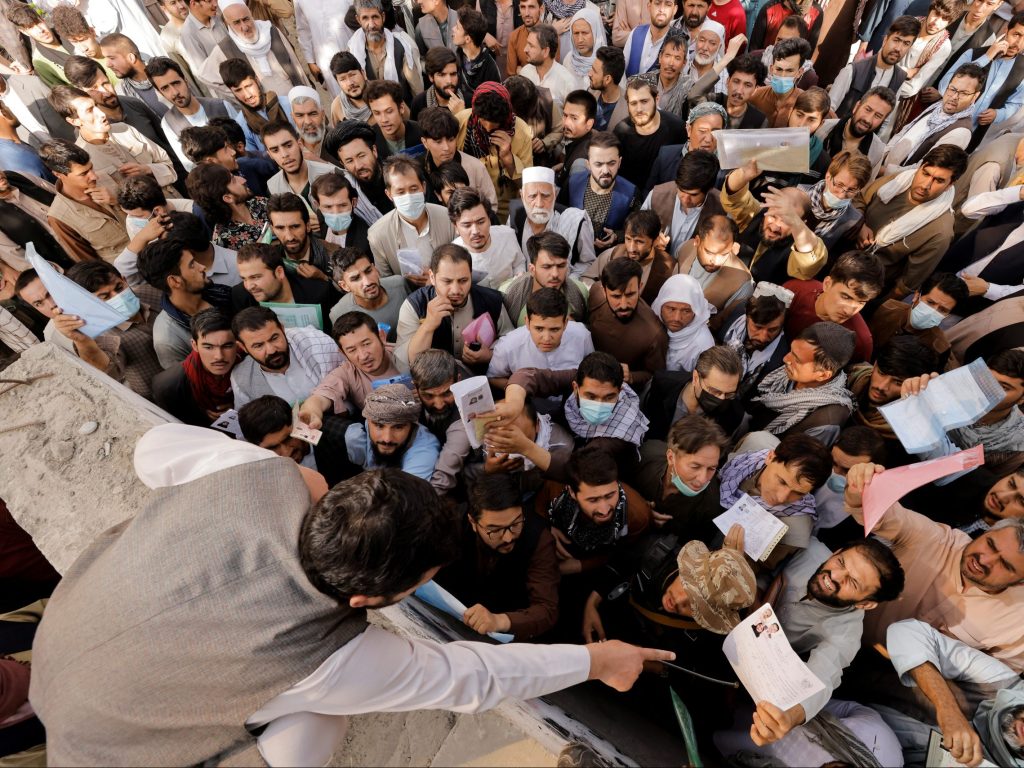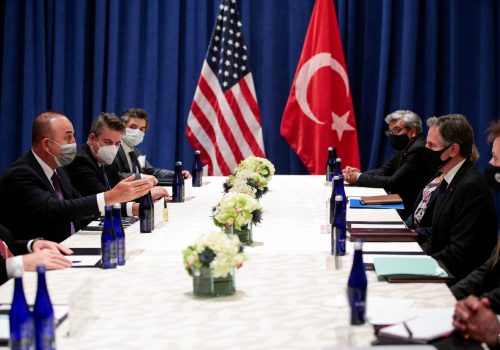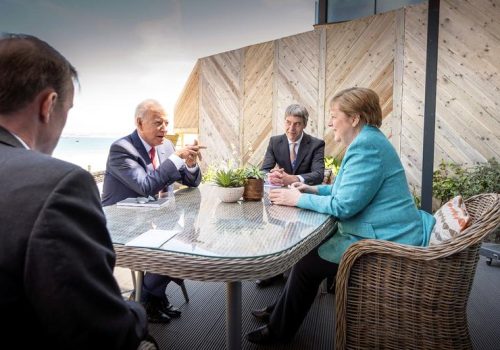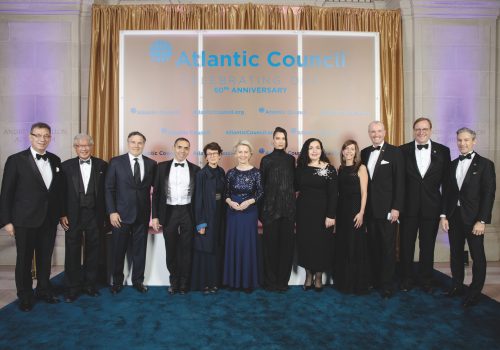Fostering partnerships with key institutions in the region to serve as a forum for dialogue as well as offering pragmatic recommendations for policymakers.
The South Asia Center is the Atlantic Council’s focal point for work on greater South Asia and the relations between its countries, neighboring regions, the United States, and Europe. Areas of focus include governance, trade and development, gender inclusivity and minority rights, climate sustainability, and security. The center is committed to partnering with experts and stakeholders from both the region and the United States to offer critical analyses and recommendations for policymakers.
2021 was a pivotal year for South Asia, as the US defeat in Afghanistan reinforced Washington’s historically security-centric focus in the region. The center’s Pakistan Initiative and US-India Trade Initiative thus took a critical look at these conversations to advocate for more constructive economic and trade engagement between the United States and the region’s major powers.
The US withdrawal and new Taliban regime in Afghanistan have precipitated a major humanitarian and economic crisis, while a second and third COVID-19 wave brought India to its knees, killing untold numbers and pushing millions more into poverty. Pakistan continues to endure economic pain as well, most recently in the form of a violent surge in inflation and a depreciating rupee, though hope remains that the renewed Pakistan-International Monetary Fund agreement from late November may bring relief. In 2021, the South Asia Center’s core foci were the continuation of its Afghanistan Strategic Dialogues, the launch of its US-India Trade Initiative, and the launch of its Pakistan Initiative.
Afghanistan Strategic Dialogues
Between the end of 2020 and first half of 2021, the center’s Afghanistan Strategic Dialogues convened four private roundtables as well as two supplementary working groups. These convenings culminated in a flagship publication, A Transatlantic Charter for Peace and Security in Afghanistan. In addition, public and private programming, including an interview with resistance leader Ahmad Massoud, an Open Letter in Support of the Afghan People, and timely webinars such as The Role of Victims in Afghanistan’s Peace Process, bolstered the center’s broader Afghanistan portfolio. Although some of this work preceded the Taliban takeover, the insights it generated were critical to shedding light on developments in the country and engaging the international and US policy and diaspora communities to ameliorate the ongoing humanitarian crisis.
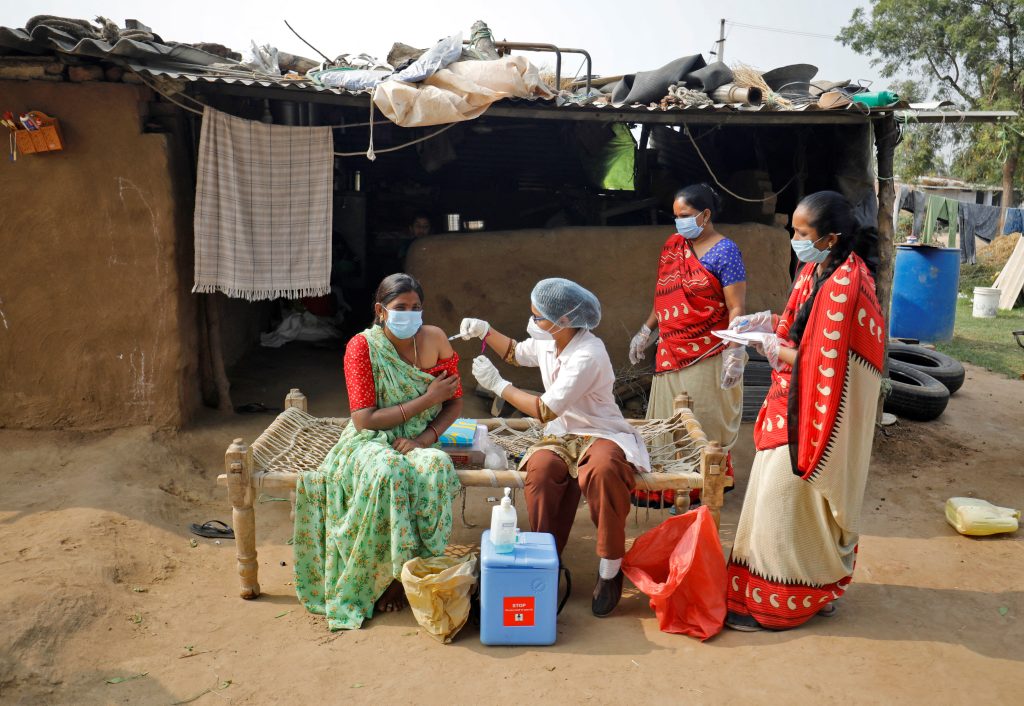
US-India Trade Initiative
In July 2021, the center released Reimagining the US-India Trade Relationship, a report written by Senior Fellows Ridhika Batra, Mark Linscott, Anand Raghuraman, and Dr. Harsha Vardhana Singh. The report analyzes the US-India bilateral trade relationship and makes recommendations to strengthen ties. Building on the report, the latter half of 2021 focused on shaping the center’s US-India Digital Economy Cooperation Initiative. Upcoming work includes strategic dialogues involving Indian and US stakeholders to promote strong and sustainable digital cooperation between the two countries.
Pakistan Initiative
The Pakistan Initiative aspires to foster a diversified and more constructive US-Pakistan relationship. In early 2021, it hosted an inaugural #ACFrontPage event, A Conversation with Nobel Laureate Malala Yousafzai on Education for All Girls. Later in the year, the South Asia Center published two key issue briefs, “Beyond Pakistan’s 2021–22 Budget: The Economy and Growth,” and “Recasting Pakistan’s Water Scarcity Challenge.” The center also hosted multiple senior officials for robust discussions on US-Pakistan relations, including former Pakistani Ambassador to the United States Asad Khan (March); Pakistan Federal Minister for Planning, Development, Reforms and Special Initiatives Asad Umar (October); State Bank of Pakistan Governor Dr. Reza Baqir (October); and Pakistani Senator and Senate Defense Committee Chairman Mushahid Hussain Sayed (November).
“At the South Asia Center, our work is premised on the fundamental question of how the United States can be an effective partner for South Asia. Our goal is not only to bolster US economic and political engagement with the region, but also to support a prosperous and democratic South Asia that celebrates its diverse character and history.”
Irfan Nooruddin
Vision for 2022
In 2022, the South Asia Center’s goal is to complete its transition into a period of growth that extends the center’s influence across the region by deepening its country portfolios on Afghanistan, India, and Pakistan. The Taliban takeover in Afghanistan poses major threats to human rights and foreshadows serious shifts in regional dynamics. The South Asia Center will strive to remain a thought leader on these issues through its strong, recognized Afghanistan portfolio. Moreover, a lack of progress in cooperation in the digital domain between Washington and Delhi offers the center an opportunity to engage and influence policymakers on both sides, just as the need for a revamped framework to guide US-Pakistan relations does in the Pakistan space.
Next
Read the full report
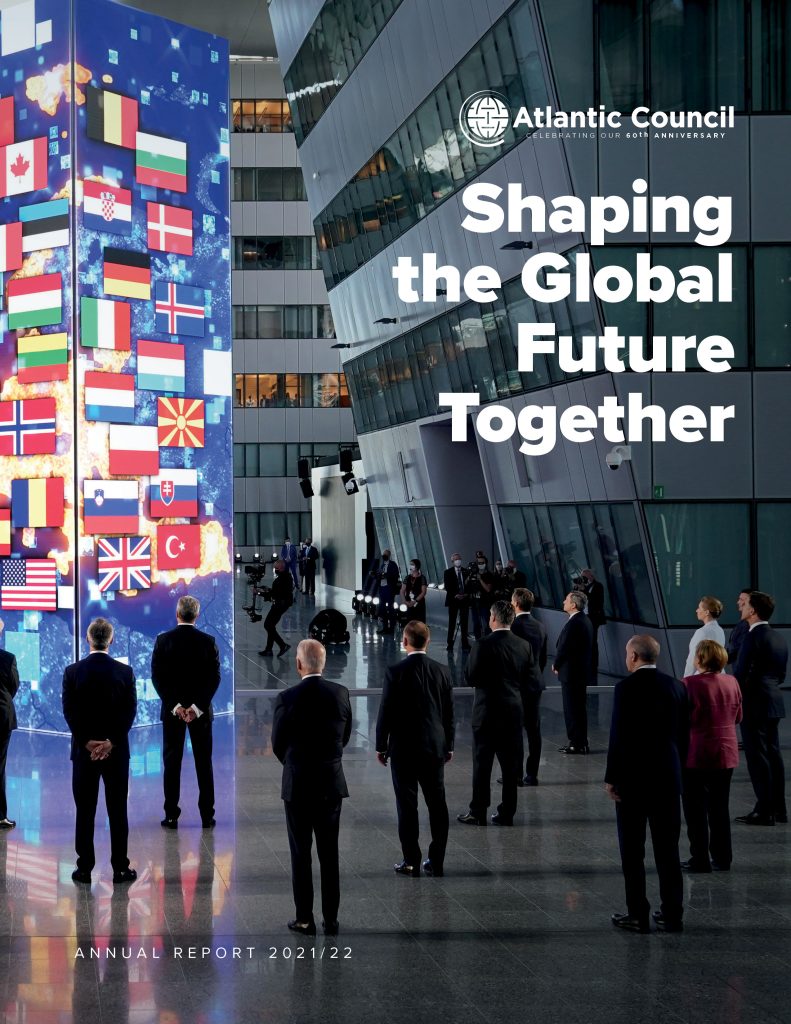
Annual Report 2021/2022
The Atlantic Council has never been more robust operationally, substantively, or financially in its sixty-year history. This comes at a time when our work has never been more crucial in the face of complex, daunting, and worldwide challenges.
Image: Afghans gather outside the passport office after Taliban officials announced they will start issuing passports to its citizens again, following months of delays that hampered attempts by those trying to flee the country after the Taliban seized control, in Kabul, Afghanistan October 6, 2021. REUTERS/Jorge Silva
